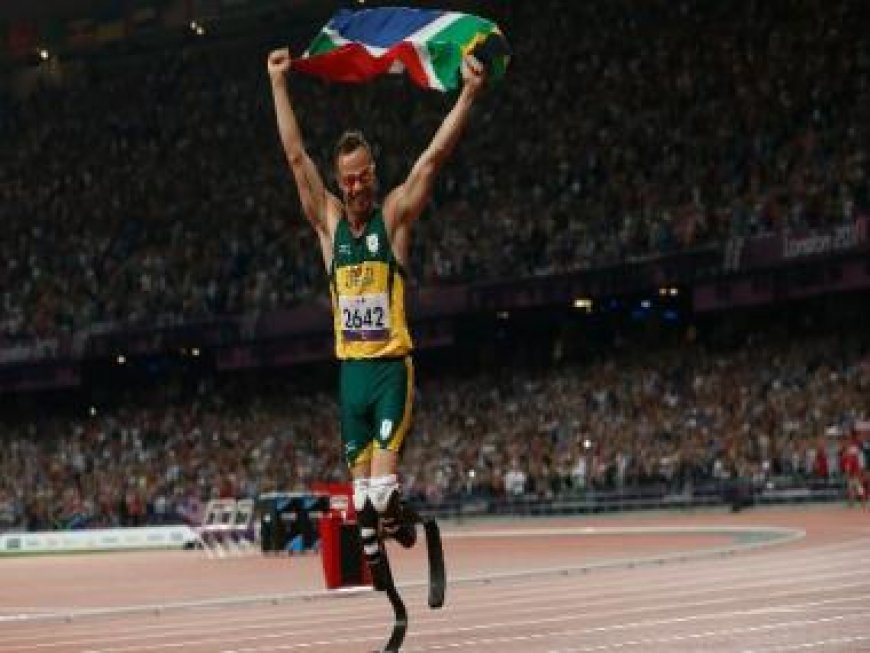Oscar Pistorius released from prison: What happened the day he killed Reeva Steenkamp? Sports career and more
Oscar Pistorius released from prison: What happened the day he killed Reeva Steenkamp? Sports career and more

Oscar Pistorius, who in 2012 became the first double amputee to compete on the track at an Olympic Games, on Friday was released from prison on parole, nearly 11 years after killing his girlfriend Reeva Steenkamp.
At the 2012 London Olympics, before 80,000 roaring fans and a constellation of camera flashes, it took South Africa’s Pistorius 45.44 seconds to become a global icon. A year later his life and of those around him turned upside down after he shot Steenkamp dead with four bullets.
The incident took place in the early hours of Valentine’s Day 2013 at his upmarket Pretoria home.
He later said he had mistaken her for an intruder.
However, the murder trial that gripped the world exposed the now 37-year-old’s darker side, offering glimpses of a dangerously volatile man with a penchant for guns, beautiful women and fast cars.
Here are a look back at Pistorius’ life.
Early childhood
Pistorius was born on 22 November 1986, in Johannesburg.
Born without fibulas, a lower leg bone, he had both legs amputated below the knees before turning one year old.
After learning to walk on prosthetic legs, Pistorius became a sportsman in high school. He turned to sprint training in 2003 after suffering a serious knee injury playing rugby.
Sports career
Running on carbon fibre prosthetic blades, earning him the nickname “Blade Runner”, Pistorius became a Paralympic gold medallist over 200 metres in Athens in 2004.
In January 2008, Pistorius was banned from running against able-bodied athletes by the sport’s governing body, the IAAF, which deemed that his blades provided an unfair advantage. Four months later the Court for Arbitration for Sport ruled that he was eligible to compete in IAAF-sanctioned events. He capped the year by winning three golds at the Paralympics in Beijing.
Pistorius was selected for South Africa’s London Olympics team and in August 2012 he made history by becoming the first double amputee to compete in Summer Games, where he reached the 400 metres semi-finals. He also carried the flag for South Africa at the opening ceremony of the London Paralympic Games and won two gold medals.
Murder and trial
Pistorius was arrested and charged with murder after he fired four shots at his girlfriend Reeva Steenkamp through a locked bathroom door at his Pretoria home on 14 February 2013.
The Olympian had claimed that after he heard an intruder, he put on his prosthetic legs, went towards the bathroom with his 9mm pistol and fired four shots. Only to later find out that his girlfriend Steenkamp was inside the bathroom and not an intruder.
He also claimed that after he realised his mistake he broke down the locked bathroom door with a cricket bat and carried Steenkamp downstairs in his arms to help her get medical attention but she died in her arms.
The prosecution, however, refuted Pistorius’ claims and said that he shot Steenkamp after having an argument. Pistorius’ neighbours also told the court they had heard noise of arguments from the house.
He was convicted of culpable homicide in September 2014, but was let off the more serious charge of murder. He started his five-year jail sentence in October, but was a year later released to house arrest.
But the Supreme Court of Appeal in December 2015 overturned the earlier ruling and found Pistorius guilty of murder. Pistorius was sent back to jail for six years in July 2016, which was less than half the 15-year minimum term sought by prosecutors.
The Supreme Court eventually more than doubled his sentence to 13 years and 5 months in November 2017, accepting state prosecutors’ argument that the original jail term was “shockingly lenient”.
Dark side
In 2009, he had spent a night in jail after allegedly assaulting a 19-year-old woman at a party in a case that was settled out of court.
He was accused of firing a gun through the sunroof of an ex-girlfriend’s moving car.
Weeks before he shot Steenkamp, he discharged a gun by accident at a Johannesburg restaurant.
The sprinter slept with a pistol under his bed at his home in a high-security estate for fear of burglars.
Considering his liking for guns and his history, his parole conditions include undergoing therapy for anger and gender-based violence issues, abstaining from drinking alcohol or consuming other substances, and completing community service.
With agency inputs
What's Your Reaction?


























































